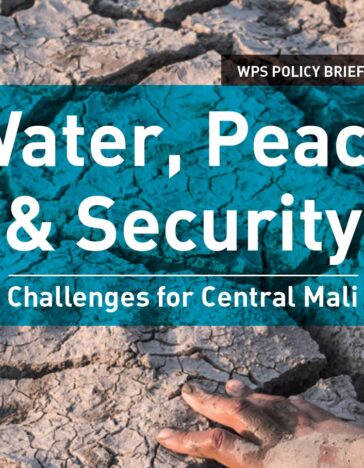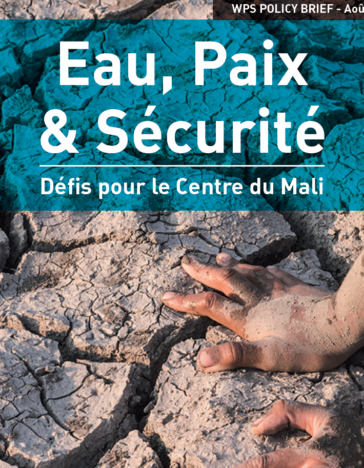
Wetlands International emphasises conflict-sensitive and human-security approaches to infrastructure as new Malian government takes office
-
Climate and disaster risks
-
Community resilience
Water infrastructure must be ‘conflict-sensitive’ and coordinated between ministries representative of all stakeholders if future escalation of violence in Mali is to be avoided, according to a policy briefing from the Water, Peace and Security initiative, written by Wetlands International.
The briefing explores the links between water, peace and security in Mali and underlines the oncoming challenges for the country’s newly established government. It takes its cue from growing hydrological and conflict evidence underlining the potential for aggravation of resource-related conflict by new developments. It is intended for national and international decision makers active in Mali, especially those concerned about the security situation.
The Inner Niger Delta region and the neighbouring drylands have experienced acute conflict since 2012, fuelled by a lack of strong governance, a weak judicial system, confusing land rights and ethnic tensions. As the new Malian government establishes itself, choices around large-scale hydropower and irrigation developments – with critical consequences — are to be made.
The key message of the briefing paper is that plans to expand irrigation, generate hydropower and restore wetlands should ensure positive effects on human security. Achieving this goal requires increased coordination involving, not only, Ministries of water, energy and agriculture, but also Ministries in charge of environment, civil protection and peace and reconciliation. Meetings organised by the Water Peace and Security partnership are a step in this direction.
The first part of the briefing describes the Inner Niger Delta (IND), Mali’s most important wetland, where many of the conflicts in the center unfold. The second part is devoted to the description of current conflicts related to water resources. The third part highlights the challenges related to new development activities. The concept note ends with conclusions and recommendations to national and international actors, focusing on new water-related development projects.
The Water, Peace and Security Partnership aims to better understand the risks of water-related security threats, to mobilise decision makers, to build capacities and to bring together stakeholders at international, national and sub-national levels, so as to mitigate tensions and pave the way for agreed and informed solutions.
It is a collaboration between Wetlands International, IHE Delft, World Resources Institute, Deltares, The Hague Centre for Strategic Studies, and International Alert, supported by The Netherlands Ministry of Foreign Affairs.
You can find the WPS Policy brief here.


